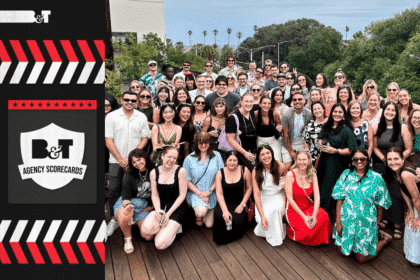Understanding consumer intent when they search online can pay dividends for marketers, but as Alex Whalley (lead image), SEO director at digital marketing agency Tug writes, it is more important than ever to ensure content is aligned to a brand’s purpose….
Whilst we assume doing keyword research is relatively simple, building an effective strategy is often the hardest part of the equation for marketers.
It’s easy enough to throw some core terms into keyword planner and then list the top related keywords with the highest search volume, but without understanding who your audience is and what the intent behind their search queries are, you will just end up with a heap of keywords with a search volume that is only overshadowed by how competitive they are.
Search intent, also known as ‘user intent’, is the main goal a user has when typing a query into a search engine. Common types of search intent include informational, commercial, navigational and transactional.
Search engine users (also known as a marketer’s future customers) don’t search with keywords in mind, they are all about intent. Once you understand customer intent, you have the information you need to attract the right audience through content.
Marketing is all about relationships and the best way to create and nurture a relationship is through relevant content that is helpful, useful, engaging, and informative.
Here is an example of a user’s search intent when users are searching… Tents
Search: “Best tents for beginners”
Intent: Navigational and informational
Search: “What tents are easiest to put up?”
Intent: Informational
Search: “How to pitch a tent quickly and easily”
Intent: Informational (and potentially transactional)
Search: “Best quick pitch tent”
Intent: Transactional (informational to a degree)
This is a typical search journey where the user’s intent was initially to find out about tents and what types they could potentially buy.
As their search journey progresses, they are able to use words like ‘pitch’ instead of ‘put up’, as well as identify the term ‘quick pitch’ as a type of tent that would meet their needs.
Whilst the search results towards the end of the journey would be transactional based (Google Shopping Carousel, eBay and Amazon results and affiliate sites selling tents), those websites that understand the intent behind the initial searches could have captured them early in the journey by crafting content that not only answered their questions but also recommended the best tents and where to buy them, with their affiliate links included of course.
Determining search intent:
- Go beyond keywords.
- Consider the buying cycle. Is it seasonal or does your product service necessitate repeat buyers – if so how often?
- Consider the sales funnel. Where in the funnel does this search query take place?
- Identify related questions. See ‘People Also Ask’ results in Google’s search engine results pages.
- Understand your customers. Are they young or old? Male or female? for example.
The cookie-less future
The only impact a cookie-less future will have on SEO will be positive, as it will place more importance on the relevancy of on page content and the overall user experience. Core web vitals, which is another important aspect of SEO, will also play a bigger role as page speed and content load times become integral to the overall experience of the user.
Search intent has always been important when optimising content and overall website SEO and with cookies no longer correlating individual users with their preferences, the true intent behind search is going to come to the forefront.
Now it is more important than ever to make sure your content aligns with your brand’s products and/or services.
Whilst cookies used to bridge the gap between a user’s search intent and what was served to them, now that gap needs to be filled by optimised content that not only answers their query, but also provides additional resources and support that can potentially lead to a sale or follow-up enquiry.








